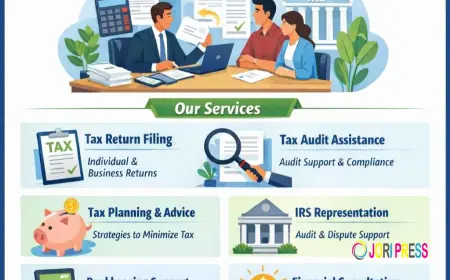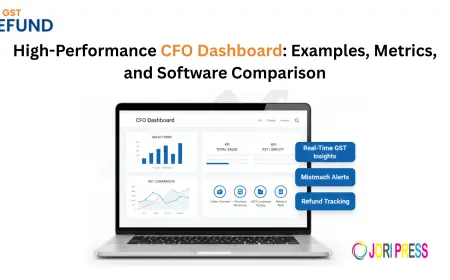Future-Proof Your Career: Why UK Taxation Knowledge Is a Must in 2025

Introduction:
In today's rapidly evolving job market, staying relevant is more important than ever. One of the most crucial skills you can acquire to future-proof your career in 2025 is a solid understanding of UK taxation. With economic shifts, evolving government policies, and the increasing complexity of the tax landscape, knowledge of UK tax systems can set you apart from the competition. In this article, we'll explore Why You Should Enroll in a UK Taxation Course in 2025, how it can benefit your career, and how you can start building your expertise today.
Why UK Taxation Knowledge Is Essential in 2025:
-
Navigating the Post-Brexit Economy:
Brexit has reshaped many industries, especially in finance, accounting, and law. As the UK continues to adjust to new trade agreements, tax policies, and regulations, businesses are actively looking for professionals who understand these shifts. Whether you’re working in the UK or internationally, an in-depth understanding of UK taxation will help you stay ahead of the curve and become a valuable asset to any organization.
-
The Rise of Digital Economy and Taxation Changes:
The digital economy has seen exponential growth, and with it, new tax challenges have emerged. The UK government has already started implementing tax reforms that target digital businesses and online services, such as digital advertising tax and the digital services tax. Understanding these evolving policies will allow you to work effectively with digital firms, finance departments, or consulting companies who need experts to interpret and navigate these regulations.
-
Increased Demand for Tax Specialists in Every Industry:
From large corporations to small startups, companies across all sectors need tax specialists who can ensure compliance, optimize tax liabilities, and develop tax strategies that align with business goals. With the introduction of new taxes and adjustments to existing ones, tax professionals will be more in demand than ever. If you’re a professional in finance, business consulting, or accounting, building expertise in UK taxation could be the key to advancing your career and securing job stability.
-
Rising Importance of Sustainability and ESG (Environmental, Social, and Governance) Taxation:
As businesses face increasing pressure to align with sustainable practices, there’s a growing need for tax specialists who understand how sustainability initiatives affect taxation. The UK government has been encouraging green businesses through tax incentives, and staying on top of such changes will give you a competitive edge in this space. If you want to work with businesses that are prioritizing environmental and social impact, understanding the tax implications of their efforts is crucial.
-
Tax Technology and Automation: The Future of Taxation:
Tax software and automation are transforming the industry. As artificial intelligence and machine learning tools become more integrated into tax compliance, those with technical knowledge of taxation paired with technological expertise will be highly sought after. In 2025, professionals who can leverage these technologies to streamline tax processes and ensure compliance will have a significant career advantage.
Frequently Asked Questions (FAQ) about UK Taxation in 2025:
1. How does UK tax law affect my industry?
Taxation laws are relevant across all sectors, but the impact varies by industry. For example, businesses in the digital sector need to understand new digital taxes, while companies in traditional industries may need to navigate changes in corporate tax rates or VAT laws. If you're in a niche sector, staying updated with relevant tax changes is crucial to minimizing risks and ensuring compliance.
2. What are the most important changes to UK tax law in 2025?
Some of the anticipated changes to UK tax law include adjustments to digital taxes, corporate tax rates, and VAT policies. With ongoing discussions about sustainability, green tax credits and incentives may also become more prevalent. Staying informed about these changes and understanding how they affect your business can help you adapt quickly and avoid costly mistakes.
3. How can I start learning UK taxation?
You don’t have to be a tax expert to get started. Begin by familiarizing yourself with the basics, such as understanding the key tax rates, common tax forms, and corporate tax structures. Many universities, online platforms, and professional organizations offer tax-related courses and certifications. Joining relevant forums or networking groups is another excellent way to stay updated.
4. Will automation replace tax professionals?
While automation is transforming the industry, human expertise is still essential for strategic decision-making, interpreting complex regulations, and offering tailored advice. Tax automation tools will streamline tasks like filing and reporting, but professionals with deep knowledge of UK tax law will remain in demand to handle more complex cases.
5. What are the career prospects for tax professionals in 2025?
The demand for tax professionals is expected to grow significantly by 2025. With constant changes in tax legislation and the increasing complexity of global taxation, companies will seek experts who can help them navigate these challenges. Specializing in areas like international taxation, digital services, and sustainability taxation can significantly enhance your career prospects.
How to Leverage UK Taxation Knowledge for Career Growth:
-
Specialize in a Niche Area:
One way to future-proof your career is by specializing in a particular area of taxation. Whether it’s corporate tax, digital tax, or tax compliance for small businesses, becoming an expert in a niche field can make you invaluable to your employer or clients. Specializations allow you to command higher salaries and gain more job security.
-
Keep Up With Tax Reforms:
Tax policies are in a constant state of flux, especially with the UK’s changing political and economic landscape. Make sure to regularly update your knowledge by following tax news, reading official government publications, and attending tax webinars. Staying up-to-date will keep you relevant in your field and give you a competitive edge.
-
Earn Professional Certifications:
Obtaining certifications from recognized bodies such as the Chartered Institute of Taxation (CIOT) or the Association of Taxation Technicians (ATT) can boost your credibility and demonstrate your expertise. Certification can help you stand out in the job market and make you more attractive to potential employers.
-
Adopt Tech Solutions:
As tax automation continues to rise, familiarize yourself with tools like tax software, AI-based solutions, and machine learning platforms. Being tech-savvy in the tax sector will not only make your work more efficient but will also position you as a forward-thinking professional.
-
Network with Tax Professionals:
Networking within the taxation community will expose you to the latest trends, tax strategies, and career opportunities. Whether through LinkedIn, industry conferences, or local tax groups, building relationships with other tax professionals will help you stay informed and open doors to new opportunities.
Conclusion:
As we move into 2025, UK taxation knowledge is no longer just a skill for accountants and tax consultants—it is a career-defining asset for professionals across industries. The UK’s evolving tax landscape presents both challenges and opportunities, and those who are equipped with the right expertise will be in high demand. By staying informed, specializing in a niche, and embracing new technologies, you can future-proof your career and position yourself for long-term success.
What's Your Reaction?
 Like
0
Like
0
 Dislike
0
Dislike
0
 Love
0
Love
0
 Funny
0
Funny
0
 Angry
0
Angry
0
 Sad
0
Sad
0
 Wow
0
Wow
0

















































